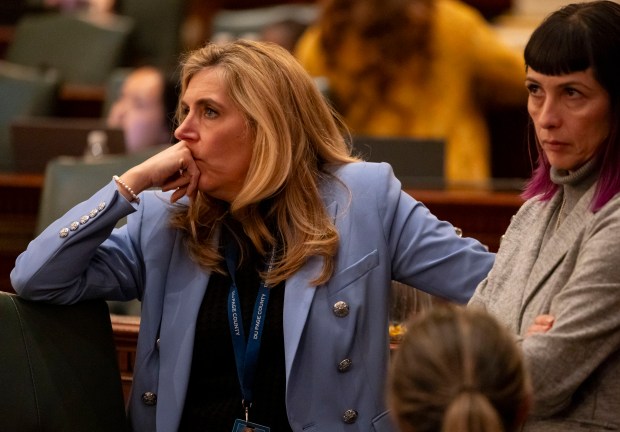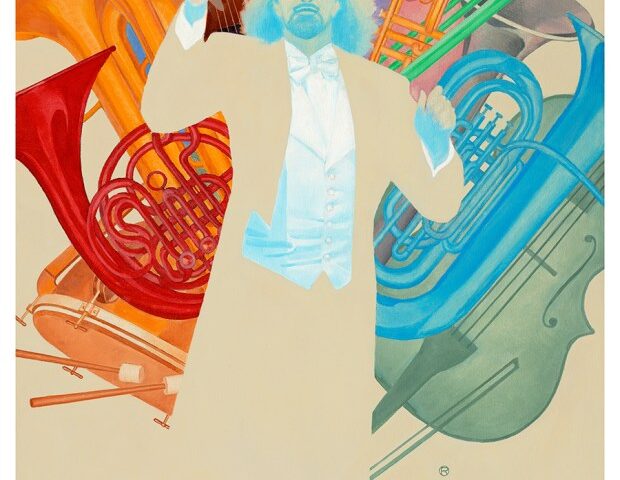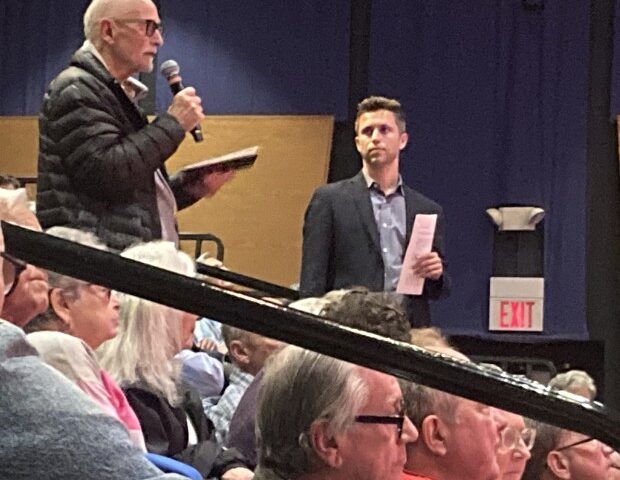State legislators who are also lawyers in Illinois are getting a new perk, courtesy of the state Supreme Court.
They just need to show up for work in the Illinois General Assembly and they’ll be able to collect credit toward satisfying continuing education classes required to keep their law licenses in good standing.
The new benefit came about from a little-noticed change in Supreme Court rules, a move encouraged and endorsed by multiple lawmakers. It took effect Jan. 1, just in time for the ongoing spring legislative session. At least 29 lawmakers were notified that they could qualify for up to 12 of the 30 educational credits they need to collect over two years.
The lawmaker-lawyers can chalk up three hours of credit by simply attending one day of a legislative session, a committee meeting or a subcommittee hearing, according to the new rule. One catch is that they can collect only three credits throughout a legislative session, such as a spring session that lasts several months or a fall veto session that lasts a few weeks, court officials said.
While many current lawmakers — notably House Speaker Emanuel “Chris” Welch, Senate President Don Harmon and Senate Minority Leader John Curran, all three of whom are lawyers — not surprisingly support the new benefit, some former legislators and state legal experts said the benefit for a select few of the state’s nearly 86,000 active lawyers raises questions about why members of the General Assembly get the special break. They and others also said it smacked of favoritism from a Supreme Court whose budget relies on lawmakers’ approval.
“It does sort of seem like special treatment for a select group of people,” said Kent Slater, who formerly served as a House Republican and as a state appellate court justice. It “looks like the Supreme Court is trying to make friends with the legislature.”
Illinois lawmakers over the years have amassed or worked to collect a wide array of benefits for themselves, including pension sweeteners and salary bonuses for higher-ranking lawmakers. For more than a century, they were able to distribute legislative scholarships, before the program was killed after news stories detailed tuition waivers at state universities for relatives, political cronies and campaign donors. In the 1980s, one legislator even advanced a bill that would have allowed lawmakers who served 10 years in the General Assembly to practice law without going to law school if they passed the bar exam. That idea rose quickly but fizzled fast once the public heard about it.
Yet the timing for this latest perk is inopportune, as it comes when Gov. JB Pritzker and his fellow Democrats who control supermajorities in both chambers are showing little interest in implementing any sweeping good-government reforms — even following former Democratic House Speaker Michael Madigan’s federal corruption conviction earlier this year.
Elizabeth Grossman, executive director of Common Cause Illinois, said the idea that lawmakers are now getting another break “rather than passing meaningful reform that will make the legislature more responsive to the people of Illinois shows us where their priorities are.”
But state Rep. Terra Costa Howard, a lawyer and Democrat from Glen Ellyn, said she pushed for the credits because she saw a need.
Though she could benefit from the new rule, Costa Howard said acquiring required educational hours “really isn’t hard” for her personally because she already gets significant annual training. But her colleagues, she said, often are in a quandary trying to find time to complete their educational hours while they are busy making laws during crunch time in Springfield.
Costa Howard said she reached out to various legal sources, including Illinois Supreme Court Justice Mary Kay O’Brien, a former House Democrat who represents the lawmaker’s region on the high court.
“I sort of just took the bull by the horns and went for it,” Costa Howard said.
‘Especially weird’
No doubt, lawmakers can learn something about state laws if they pay attention to debates, ask questions and discuss the legal issues as part of the General Assembly. Because their job, which is technically part-time, also requires them to vote on proposed state laws, they also have an argument that attending legislative hearings could qualify for continuing education credit hours.
“The work that we do as legislators is actually continuing legal education each and every day,” said Costa Howard, who served six years on a House judiciary panel. “The legislation that you are working on, really going through, has to do 100% with the practice of law. You’re looking at statutes, how they are read and interpreted, and it’s what we do all the time.”
The new rules went into effect at the start of the year but in March the Illinois Supreme Court’s Minimum Continuing Legal Education Board sent a reminder to legislators explaining, for example, how a House lawmaker who is a lawyer can receive the credit by sending in a copy of a “Quorum Roll Call,” the official House record that keeps track of who punched their attendance button for a particular legislative day. A similar process was explained for senators. A video link was even provided to help lawmakers figure out how to get their “non-traditional” credit.
“You will earn three hours of general MCLE credit by attending at least one day of one qualifying legislative session,” the video said.
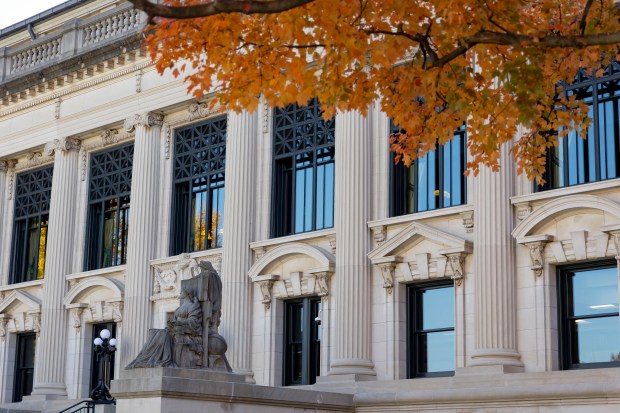
How much credit lawmakers should receive is another issue getting attention.
“If it adds up to 12 hours, that’s quite a bit,” said Ann Lousin, a professor at the University of Illinois Chicago’s law school who worked as a researcher at the 1970 Illinois Constitutional Convention. In comparison, she said, she might get 15 credit hours for writing a substantial law review article or a book on legal issues.
Steven Lubet, a professor emeritus at Northwestern University’s law school and an expert on legal ethics, called the credit for lawmakers “remarkable.”
“It is especially weird because full-time law teachers do not obtain credit for teaching law school courses, presumably on the theory that MCLE credit requires more than just doing your job,” Lubet wrote in an email. “I don’t see why that same principle wouldn’t apply to legislators.”
In an interview, Lubet acknowledged he didn’t have a “great problem” with extending credit for legislative hearings that include evidence about why a law should be written but he said that the inconsistency of what counts as credit is “jarring.”
Costa Howard, while saying she has “utmost respect” for most law professors, maintained that writing and teaching law is very different from lawmakers’ interpreting, preparing and explaining bills in Springfield.
‘A national movement’
The decision to give Illinois lawmakers credit raised the number of states that count legislative service toward legal education to at least 24. Before the decision, the nation was split evenly, with 23 states giving credit to lawmakers for their service and 23 that did not, according to research by the Administrative Office of the Illinois Courts. Four states didn’t require continuing legal education. Eleven states provided a “full CLE exemption for attorney legislators,” said Supreme Court spokesman Christopher Bonjean.
“The Illinois Supreme Court has been part of a national movement to recognize the educational value of activities outside of traditional coursework. One early example of this is attendance and teaching at bar association meetings,” Bonjean wrote in an emailed response. “This has gradually expanded to legal scholarship, lawyer-to-lawyer mentoring and service on Supreme Court Boards, Commissions, and Committees. Expansion of limited credit for legislators is a continuation of this, and the Court most recently added a pilot project for CLE credit for providing pro bono legal assistance.”
While a legislator could claim three hours of credit if a short committee meeting is the legislator’s only committee hearing or full legislative session for the day, it is likely that every lawmaker will have other scheduled legislative days to participate in a full legislative session or committee hearing for at least three hours in either session, according to court officials.
Legislative support included a letter co-signed by Welch “along with more than 30 colleagues from both sides of the aisle asking the Supreme Court to consider recognizing the work legislators do as part of their continuing legal education requirement,” said Jon Maxson, Welch’s spokesman. “Throughout his time as a lawmaker and attorney, the speaker has completed his CLE requirements and will evaluate how this rule can contribute to this requirement going forward.”
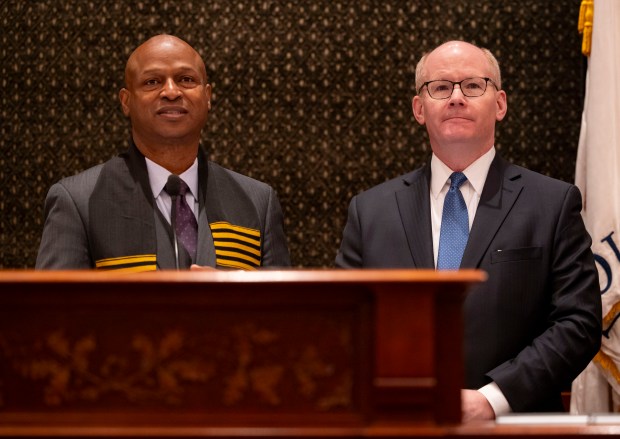
Similarly, Harmon spokesman John Patterson said the Senate president communicated to court officials his support for the new rule. Patterson said giving the credits to lawmakers has been talked about for many years and Harmon has indicated his support “in passing conversations over the years.”
“It seems like a reasonable approach,” Patterson said. “Continuing Legal Education programs are intended to make sure lawyers stay up to date with laws, and that’s what lawmakers do on a daily basis during session.”
Patterson said it is possible Harmon will tap into the new credits for legislative service, depending on what his overall tally of credits is when it is time for him to report.
Curran, the Senate GOP’s leader, said he was not sure if he would partake in the opportunity for credit because his law firm uses the Illinois State Bar Association’s online offerings for educational purposes, but he said he supports the new rule.
“I thought it was a very appropriate accommodation by the Supreme Court in recognition of just the volume of statutory work we do as legislator lawyers,” Curran said. “I would put the statutory work I do as a legislator against any CLE (course) that I’ve ever been a part of.”
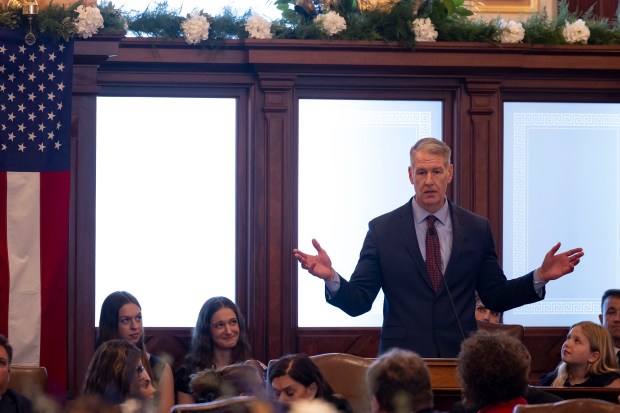
House Republican Leader Tony McCombie of Savana is not a lawyer. But her predecessor, former Rep. Jim Durkin, a former prosecutor from suburban Cook County, embraced the idea, saying his time spent debating, discussing, crafting and rewriting bills was more valuable than “watching a CLE program on my laptop.”
Who’s next?
Giving credit to this select group of lawmakers, of course, raises the issue of whether the same opportunity should be made available to lawyers elected to city councils and village boards — a point Illinois Municipal League CEO Brad Cole said is a “natural question.”
In their own communities, Cole said, “local officials write the laws too.”
Cole said he would monitor how the credit is used by state lawmakers and, if all goes well, look at requesting the credit be expanded to include lawyers elected to local government positions.
Asked whether lawyers elected to local posts should receive similar educational credits, Curran said: “I think they should direct those issues to the court and ask the court to take a review of it.”
One question that often arises in Springfield is, once you start expanding a benefit, where do you stop?
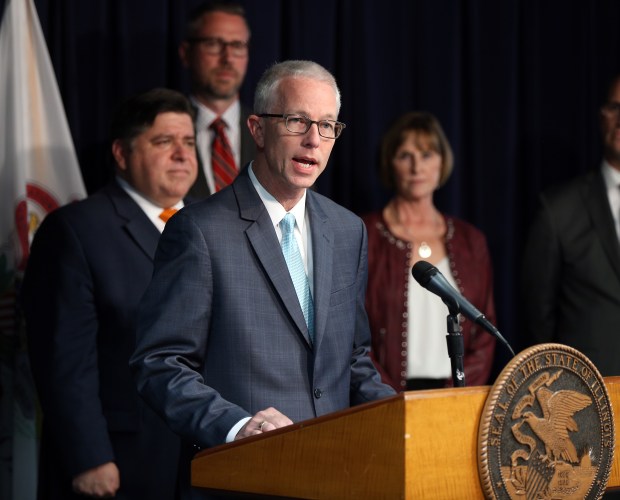
In the 1980s, Democratic Sen. Frank Savickas of Chicago took advantage of a fast-paced day loaded with mundane bills to win support on a voice vote for an amendment that allowed lawmakers with a decade of service to become lawyers without going to law school. The one caveat was they had to pass the bar exam.
Savickas, who was not a lawyer but enjoyed creating mischief, suggested, perhaps tongue-in-cheek, that legislators make laws and should be smart enough to use them professionally.
The idea went nowhere once the proposal made headlines, but his move to make veteran lawmakers eligible to practice law became legendary. It even drew admiration from colleagues when the Senate passed a traditional memorial resolution years later upon his death.
Even in Springfield, however, the resurrection of the Savickas proposal is unlikely — at least not anytime soon. Costa Howard “can’t imagine” it would pass today.
“Those of us who’ve actually graduated from law school and taken the bar would take umbrage with that,” she said.


